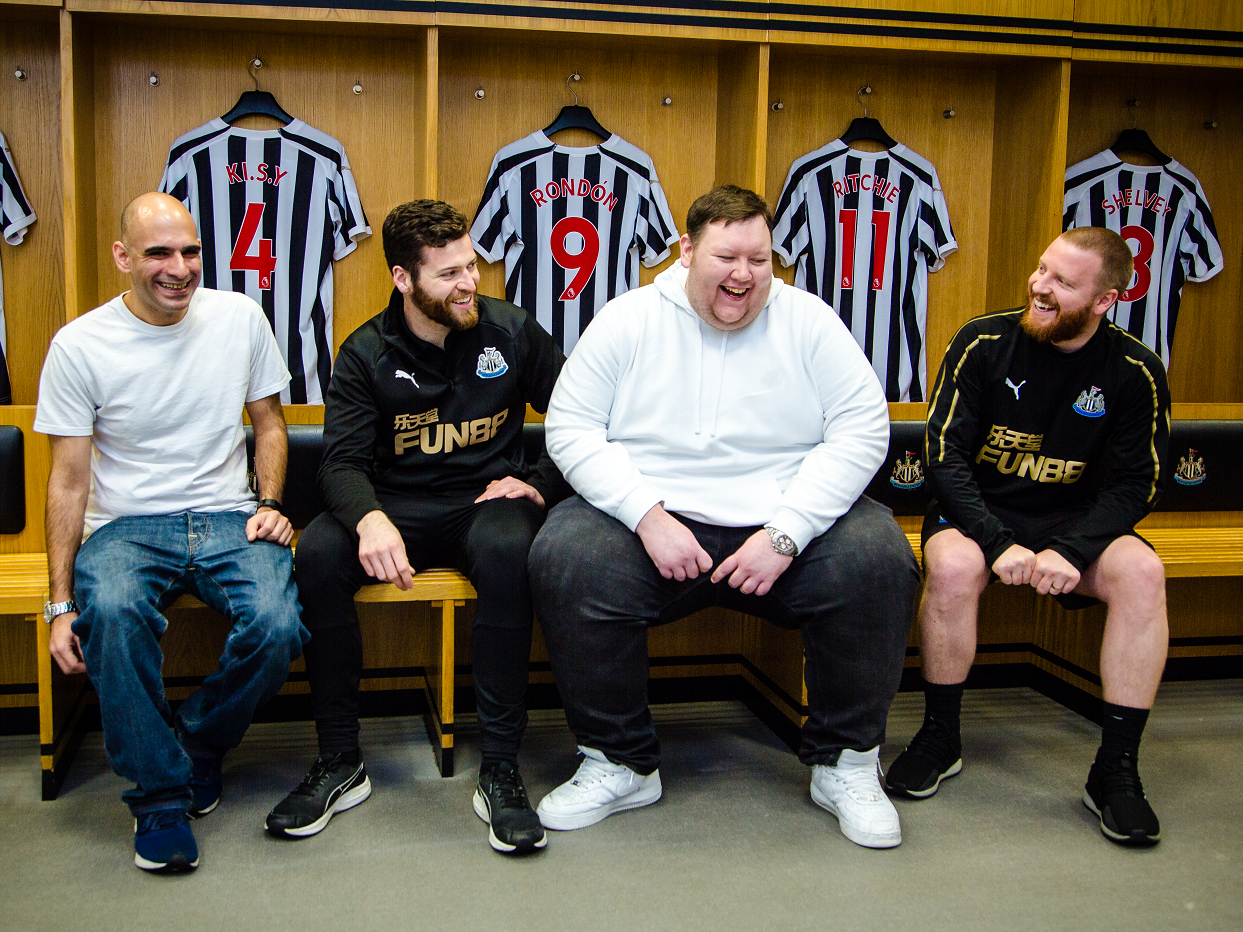Why football can open the door to overdue conversations about mental health
In a world where some features of masculinity can create societal challenges, fusing the two creates a good chance of not only starting the discussion, but keeping it going too


Your support helps us to tell the story
From reproductive rights to climate change to Big Tech, The Independent is on the ground when the story is developing. Whether it's investigating the financials of Elon Musk's pro-Trump PAC or producing our latest documentary, 'The A Word', which shines a light on the American women fighting for reproductive rights, we know how important it is to parse out the facts from the messaging.
At such a critical moment in US history, we need reporters on the ground. Your donation allows us to keep sending journalists to speak to both sides of the story.
The Independent is trusted by Americans across the entire political spectrum. And unlike many other quality news outlets, we choose not to lock Americans out of our reporting and analysis with paywalls. We believe quality journalism should be available to everyone, paid for by those who can afford it.
Your support makes all the difference.Mental health is an important topic in football, especially given the highly competitive nature of being a sports star in the public eye. I’m not sure how I’d feel if I had the weight of the nation’s happiness resting on whether I scored a penalty.
But that collective happiness that penalty shots have the power to make or break can be used proactively. Our shared love of the beautiful game can also galvanise fans to manage their mental health more positively
Football fans are a tribal crowd. They’re a tight community whose emotions move in unison to the ups and downs of their team’s performance. And their family’s support for their local club may go back many generations. Their football club, in many ways, forms part of their identity.
So, what does football have in common with mental health?
Well, a large proportion of football fans are male. And a significant proportion of people who lose their lives to suicide are also men. In fact, suicide is the biggest killer of men under 45 and, in 2017, the northeast had the highest suicide rate in England.
With the support of Newcastle City Council, the Premier League PFA Community Fund and Newcastle United we launched our #BeAGameChanger campaign last month, with the aim of changing conversations around mental health.
In a world where some features of masculinity can create societal challenges, there are significant barriers to overcome when it comes to men’s mental health. I’m sure that this statement will come as no surprise to anyone reading this.
But what I want to highlight, is how we can use football to overcome these social challenges.
Football is a good hook to engage with hard-to-reach groups in ways that invitations to specifically discuss “mental health” may not be – especially if they feel ashamed about the problems they may be facing.
We need to look at what it is about football that unites us – the passion we have for the sport, the pride in our club, the social aspects of the football community.
If we can bring these ingredients together, we stand a much better chance of not only starting the conversation, but keeping it going too.
This is why many of Newcastle United Foundation’s health and wellbeing programmes start in the very place the fans love to congregate – St James’ Park.
Once people join the programme, we make sure the conversation is relatable, without being patronising. So instead of discussing diagnoses, we talk about behaviours or lifestyle impacts.
This could be a discussion about sleep, stress or anger. And we might explore diet, alcohol and support networks. We also look at the science behind happiness – using a practical approach to encouraging happiness that men can relate to.
So in the very place where fans naturally unite over football, they unite over physical and mental health too. Barriers are broken down and honest, supportive conversations take place. And these conversations don’t happen in a formal classroom setting – they happen in an executive box, overlooking the pitch as we’re wearing our Toon shirts. And they continue out into the community as we take part in walking football sessions, cycling groups or boxing classes.
But you don’t need a football stadium to use the power of football. Simply sharing a love for the sport can be a great reason to start a community football team – a team that tackles isolation by creating new social opportunities and networks, and that promotes physical wellbeing which also positively impacts on mental health.
And sometimes, having a conversation with a mate about mental health can be much easier if you’re doing something you both enjoy, like having a kickabout down the park or inviting a mate round to watch the match on the telly. It’s a far more relaxed approach and likely to be more impactful than arranging a sit-down, face-to-face conversation.
Our mental wellbeing is reliant on many factors – social networks, family, a safe and secure home, purpose, professional support and medication where appropriate. So to encourage engagement with all of these factors, it makes perfect sense to use football to bring them all together.
With football uniting thousands of men – and women – across the country, it’s a genuinely powerful place to start.
Ollie Bell is a project officer with Newcastle United Foundation, where he devises and delivers activities to inspire improved community health. He is currently studying for a PhD at Newcastle University, exploring the healthy lifestyle motivations of men in hard-to-reach groups.
To find out more about Newcastle United Foundation’s ‘Be A Game Changer’ campaign, visit nufoundation.org.uk/beagamechanger
Join our commenting forum
Join thought-provoking conversations, follow other Independent readers and see their replies
0Comments